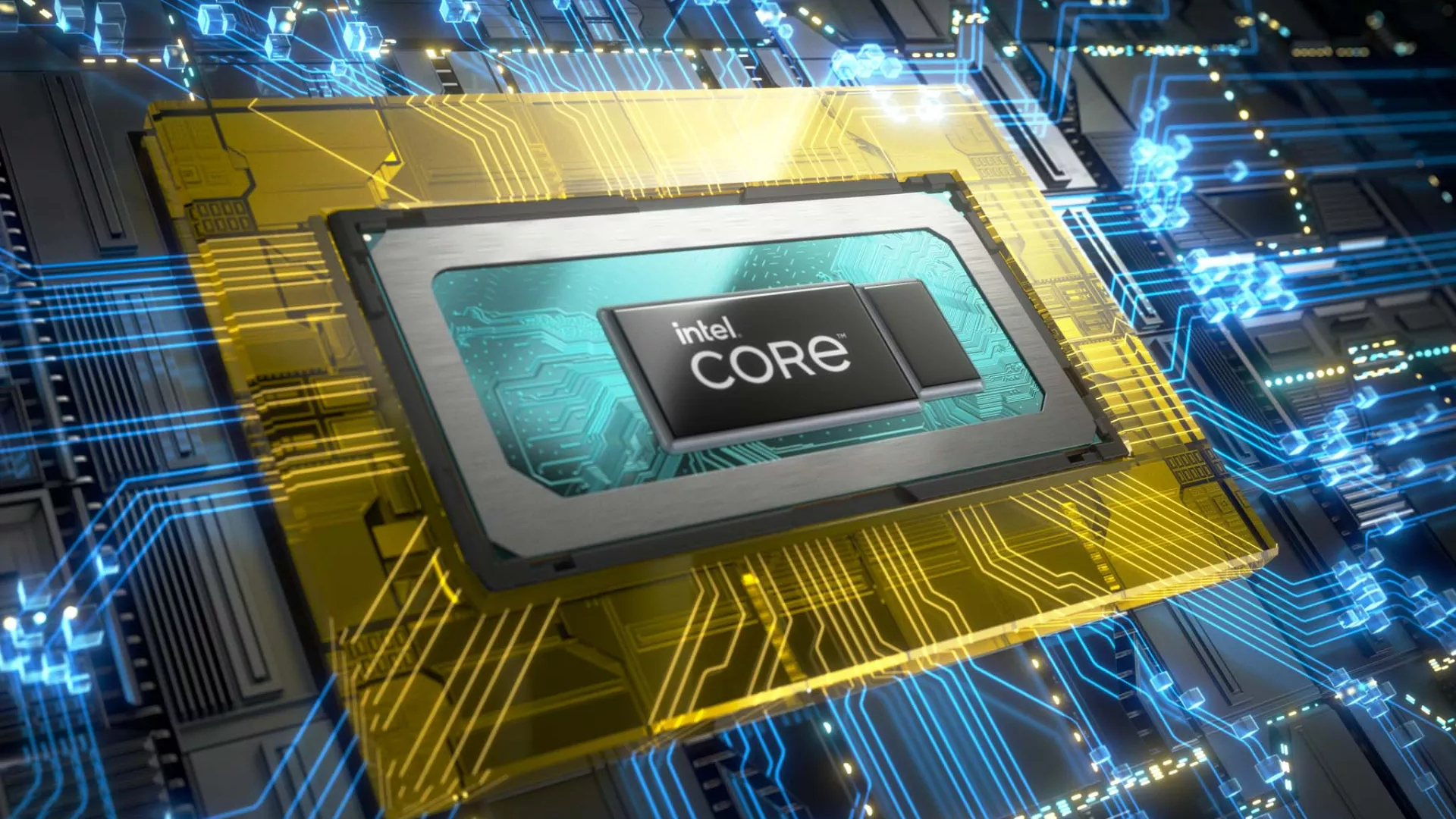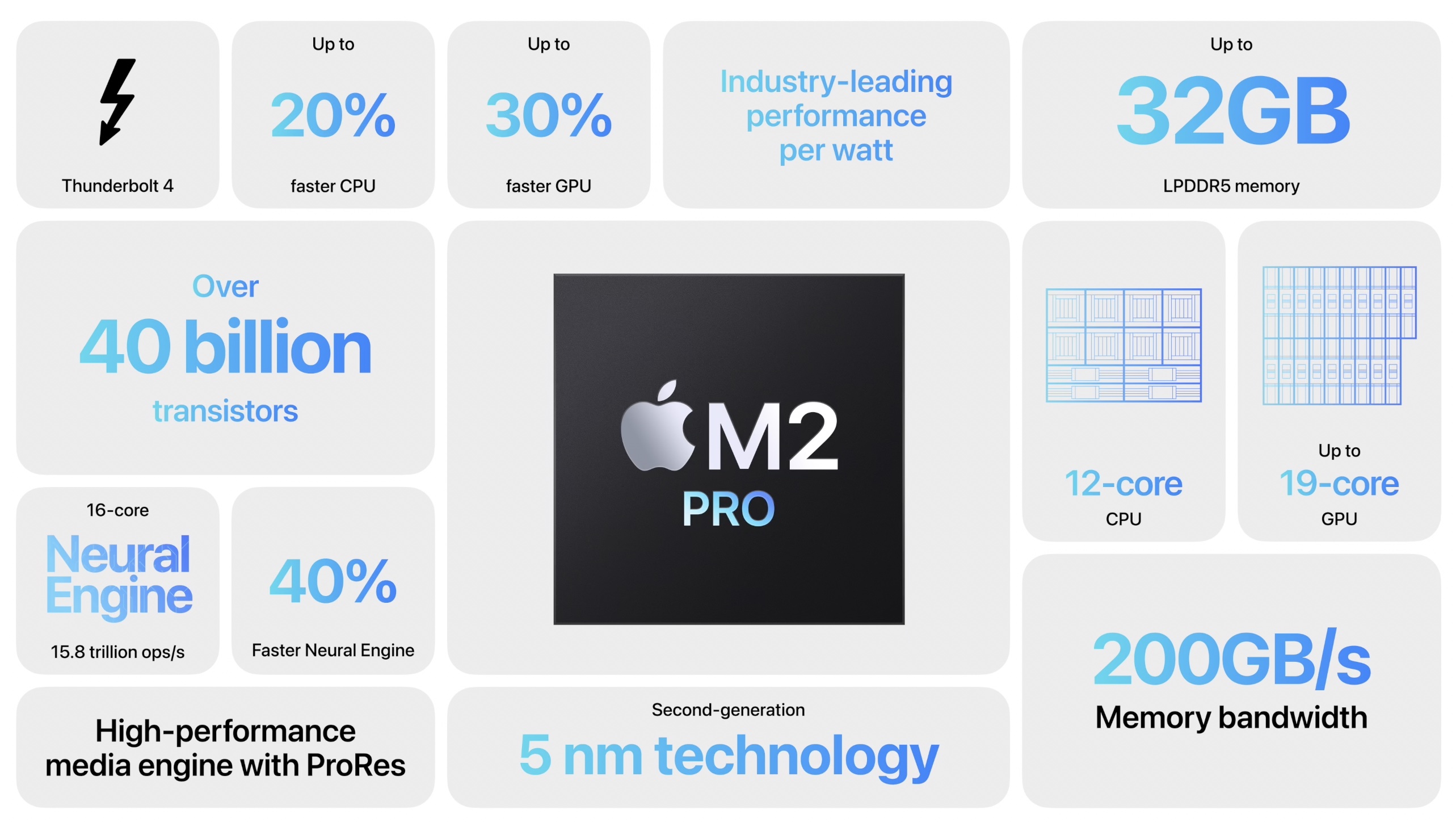Apple's M2 Pro chip faster than 12th-gen Intel i7, slower than 13th-gen i5 in early benchmarks
How does Apple silicon stack up to Intel?

Earlier this week Apple unveiled the next iteration of Apple silicon in the form of its M2 Pro and M2 Max chips.
The former stars in Apple's new M2 Mac mini alongside the original M2 chip, while the M2 Pro and M2 Max versions are available in a brand new MacBook Pro for 2023, available in 14- and 16-inch sizes.
Overnight, the very first benchmarks of Apple's stunning new chip appeared, revealing a pretty staggering performance boost over M1 Pro and M1 Max.
According to the scores, Apple's M2 Pro chip is faster than the old M1 Max, leaving us filled with anticipation for the M2 Max figures, which are yet to surface.
Apple M2 Pro vs Intel

While many people will simply use the performance of Apple silicon to determine which is the best MacBook or desktop Mac for them in certain circumstances, people will definitely be curious to see how these new chips stack up to Intel's latest offerings. Especially since the comparisons Apple offers in its PR are usually a bit skewed. For instance, Apple compares its M2 Mac mini to the "best-selling" Windows desktop, which runs a pretty poxy older Intel i5 chip. It might be an accurate claim, but it's not that relevant.
The M2 Mac Mini, sporting the M2 Pro, which has 12 cores and a base clock frequency of 3.48Ghz, scored 1952 in the single-core Geekbench 5 test, and 15013 in the multi-score test.
Disclaimer: benchmarks aren't everything, and these are the very first set of results for the new chip, so this could change going forward. It's also worth noting that heftier Intel chips are being benchmarked inside much more sophisticated cooling systems, possibly using liquid cooling or large heatsinks and fans, whereas the Apple Mac mini's cooling is decidedly more limited.
Master your iPhone in minutes
iMore offers spot-on advice and guidance from our team of experts, with decades of Apple device experience to lean on. Learn more with iMore!
However, according to Geekbench, that means the M2 Pro chip is faster than the Intel Core i7-12700K, which clocks single and multi-core scores of 1907 and 14188 respectively.
The single-core score of the M2 Pro is broadly similar to the 12th generation Intel Core i9-12900KF, but that Intel chip offers a much better 17121 multi-core score, thanks in part to its 16-core build. The 12900K, meanwhile firmly beats the M2 Pro, as does the KS version.
Apple's M2 Pro score isn't enough to beat the 13th-generation Intel i5-13600K, which scores 1961 and 15124. However, the difference in these results is fairly negligible, so the M2 Pro almost matches the i5 here.
Both the 12th and 13th generation of Intel's chips use hybrid architecture. That means they utilize a combination of performance and efficiency cores, much like Apple silicon. The P(erformance) cores drive the power, while the E(efficiency) cores at great for when less power is needed, especially in mobile devices.
Across the divide at AMD, the M2 Pro sits firmly ahead of the AMD Ryzen 5 7600 and 7 7700 in single-core scores, but outclasses both in multi-core. Its multi-core score is also ahead of the AMD Ryzen 7 7700X. You can see how the M2 Pro stacks up against these mainstream chips at a glance in the table below. But remember, the M2 Max is yet to take to the field in benchmarking, and is likely to vastly improve on these M2 Pro scores.
| Chip | Single-core | Multi-score |
|---|---|---|
| M2 | 1961 | 9003 |
| M2 Pro | 1952 | 15013 |
| M2 Max | 2030 | 15333 |
| Intel Core i7-12700K | 1907 | 14188 |
| Intel Core i9-12900KF | 1955 | 17121 |
| Intel Core i5-13600K | 1961 | 15124 |
| AMD Ryzen 5 7600 | 2011 | 10865 |
| AMD Ryzen 7 7700 | 2088 | 13521 |
| AMD Ryzen 9 7900 | 2119 | 18003 |

Stephen Warwick has written about Apple for five years at iMore and previously elsewhere. He covers all of iMore's latest breaking news regarding all of Apple's products and services, both hardware and software. Stephen has interviewed industry experts in a range of fields including finance, litigation, security, and more. He also specializes in curating and reviewing audio hardware and has experience beyond journalism in sound engineering, production, and design. Before becoming a writer Stephen studied Ancient History at University and also worked at Apple for more than two years. Stephen is also a host on the iMore show, a weekly podcast recorded live that discusses the latest in breaking Apple news, as well as featuring fun trivia about all things Apple. Follow him on Twitter @stephenwarwick9
